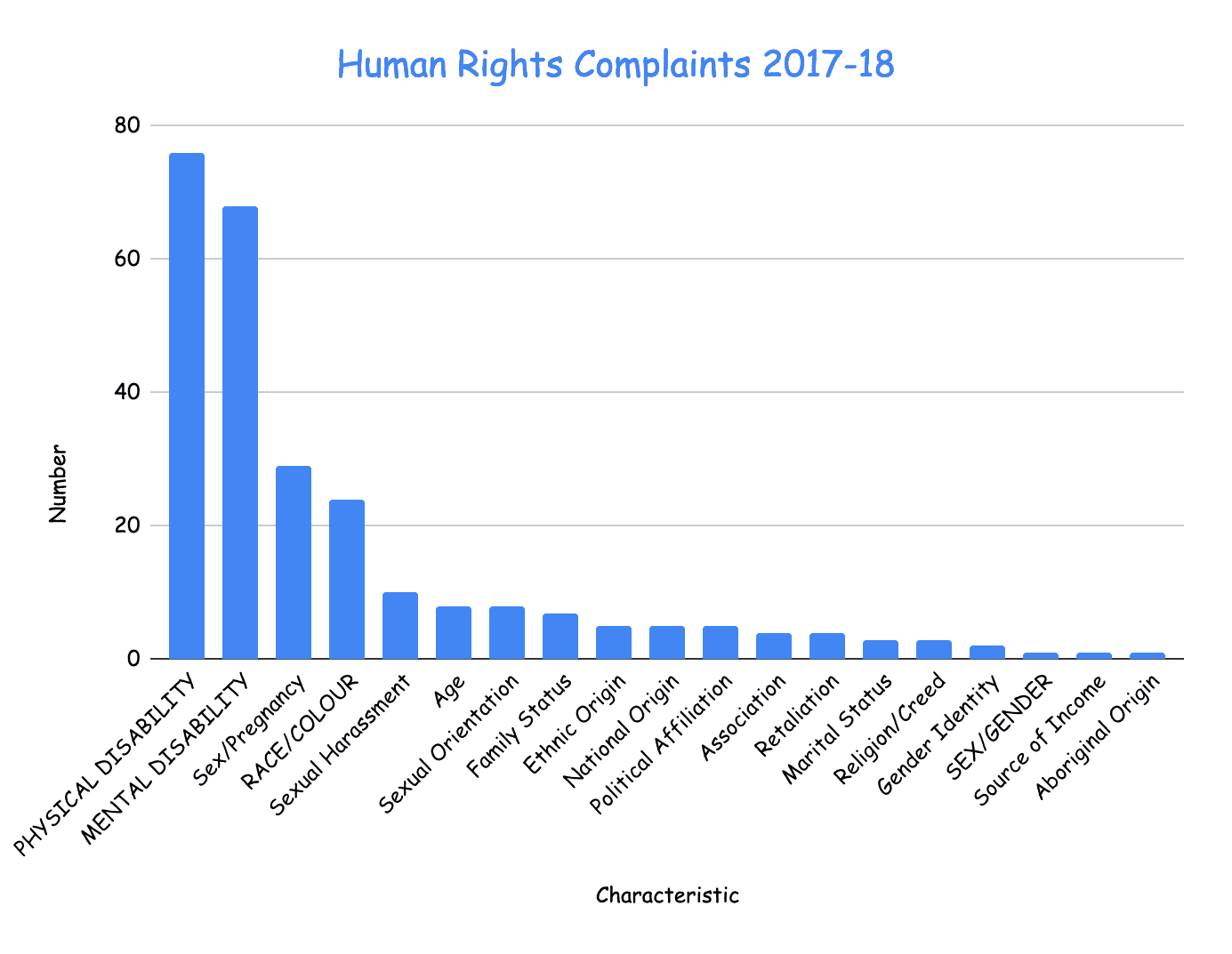This article was originally posted on the website of the James McGregor Stewart Society. Re-posted with permission.

KJIPUKTUK (Halifax) – I’m gonna go ‘way out on a limb here and venture to say that none of the Nova Scotia Human Rights Commissioners is a person with a transformative disability. The odds are in my favor. Very few people with disabilities are appointed to Nova Scotia’s 135 Agencies, Boards and Commissions (ABCs) despite the claim that “The Government of Nova Scotia has an employment equity policy and we encourage people from diverse communities to apply. Applicants are invited to self-identify to help us increase diversity on our ABCs.”
The reason for concern is that over half of the complaints accepted by the Human Rights Commission (HRC) deal with disability:

You might argue that such cases aren’t all that hard to grasp. I would say that the personal and societal consequences of disability are way beyond the imagination of those who haven’t had first hand experience. Nobody would argue that for race or gender situations, so why does the HRC think it can get away with it here?
“Nobody applies”, Laura Lee Langley of the Executive Council Office (responsible for ABCs) might say. “You don’t recruit very well”, I’d answer. Or I might say “You actively discourage applicants.”
And why is the lack of representation important? Because there’s no one around to notice the HRC’s hopelessly outdated on-line course called “Working with Abilities” It’s a 64 page lesson in how not to talk about disability. It quotes the Act:
- loss or abnormality of psychological, physiological or anatomical structure or function
- restriction or lack of ability to perform an activity
- physical disability, infirmity, malformation or disfigurement
- learning disability or a dysfunction in one or more of the processes involved in understanding or using symbols or spoken language
- condition of being mentally impaired
- mental disorder
- dependency on drugs or alcohol
All those loaded words and adding 6 pages of excruciating detail about categories and subdivisions. This is gratuitous and offensive and serves no purpose. If the purpose is to explain “accommodation” there’s no need to recite old-fashioned notions of disability. Let’s remind ourselves of Maude Lewis’ disfigurement and forget her art…….
The lack of representation is important because no one is around to raise a voice against this statement by J. Walter Thompson, Q.C. in the now-infamous Emerald Hall inquiry: “Joey Delaney (one of the complainants) is so disabled that payment to him of a very large sum will not have a greater impact on his life than a moderate sum.”
On the contrary, disability is often expensive. Joey was awarded $100,000. Does Joey use a wheelchair? They can easily cost $25,000.
Elsewhere, Thompson reports “He can hum his ABC’s, can say his name and communicate with grunts and pointing.” Joey is 48 now, and deserving of everything we can do to restore the time we stole from him. Specialists, medications, equipment – all cost money
I don’t find a diagnosis for Joey. Money spent for that might reveal similar cases and their course and even treatment possibilities. It is evident to me and should concern the HRC that Thompson is as guilty of discrimination as the respondents in the case. Because he is a person with a disability, he gets less.
I hasten to add that in retaining supervisory authority, Thompson performs a positive service, making sure the province fulfills its promise of a small options home for Joey.
And without any representation from a person with a disability, who will notice that the Board of Inquiry order to enforce food safety regulations has produced only fog in the 584 days since it was made?
And without any representation from a person with a disability, who will remember this prescient statement?
“more proactive governmental responses are needed to ensure systemic change and take away from individuals the burden of initiating lengthy and onerous legal procedures to achieve the recognition and enjoyment of their rights. There is an urgent need for high-level leadership at the federal, provincial and territorial levels to guide and guarantee an effective and coordinated implementation of the rights of persons with disabilities across Canada.”
End of Mission Statement United Nations Special Rapporteur on the rights of persons with disabilities Ms. Catalina Devandas-Aguila
With a special thanks to our generous donors who make publication of the Nova Scotia Advocate possible.
Subscribe to the Nova Scotia Advocate weekly digest and never miss an article again. It’s free!



